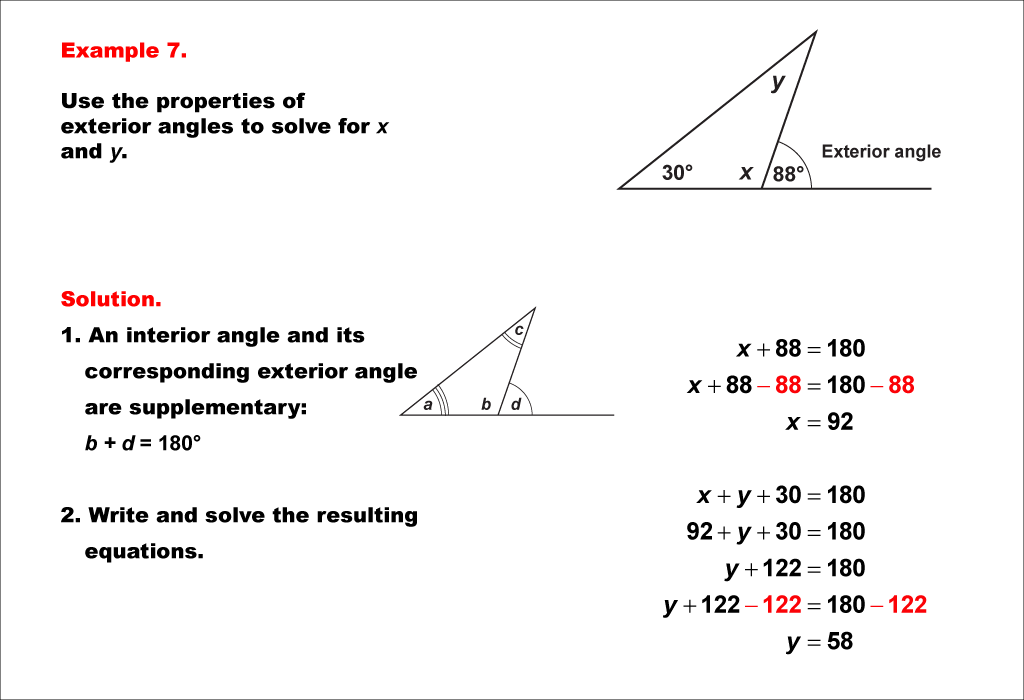
Display Title
Math Example--Solving Equations--Equations Using the Exterior Angle Theorem--Example 7
Display Title
Equations Using the Exterior Angle Theorem--Example 7

Topic
Equations
Description
This example illustrates another application of the Exterior Angle Theorem in solving triangle-related equations. In this scenario, we have a triangle with one known interior angle of 30°, an unknown interior angle y, and a known exterior angle of 88°. The Exterior Angle Theorem states that an exterior angle of a triangle is equal to the sum of the two non-adjacent interior angles. Here, the equation is set up as 88° = 30° + y. This problem demonstrates how the theorem can be used to find an unknown interior angle when given one interior angle and the exterior angle. To solve for y, we subtract 30° from both sides, resulting in y = 58°. With this information, we can now solve for angle x.
The methodology for solving such equations involves identifying the known angles, setting up the equation based on the theorem, and then using basic algebraic operations to isolate the unknown variable. This process combines geometric understanding with algebraic skills, reinforcing the connection between these two mathematical domains. By working through this type of problem, students develop a deeper understanding of angle relationships in triangles and practice important problem-solving techniques. This example serves as a valuable exercise in applying geometric theorems to real-world scenarios, preparing students for more advanced topics in mathematics and geometry.
For a complete collection of math examples related to Equations That Use the Exterior Angle Theorem click on this link: Math Examples: Equations That Use the Exterior Angle Theorem Collection.
| Common Core Standards | CCSS.MATH.CONTENT.8.G.A.5 |
|---|---|
| Grade Range | 6 - 8 |
| Curriculum Nodes |
Geometry • Triangles • Applications of Triangles |
| Copyright Year | 2021 |
| Keywords | exterior angles, exterior angle theorem, supplementary angles |